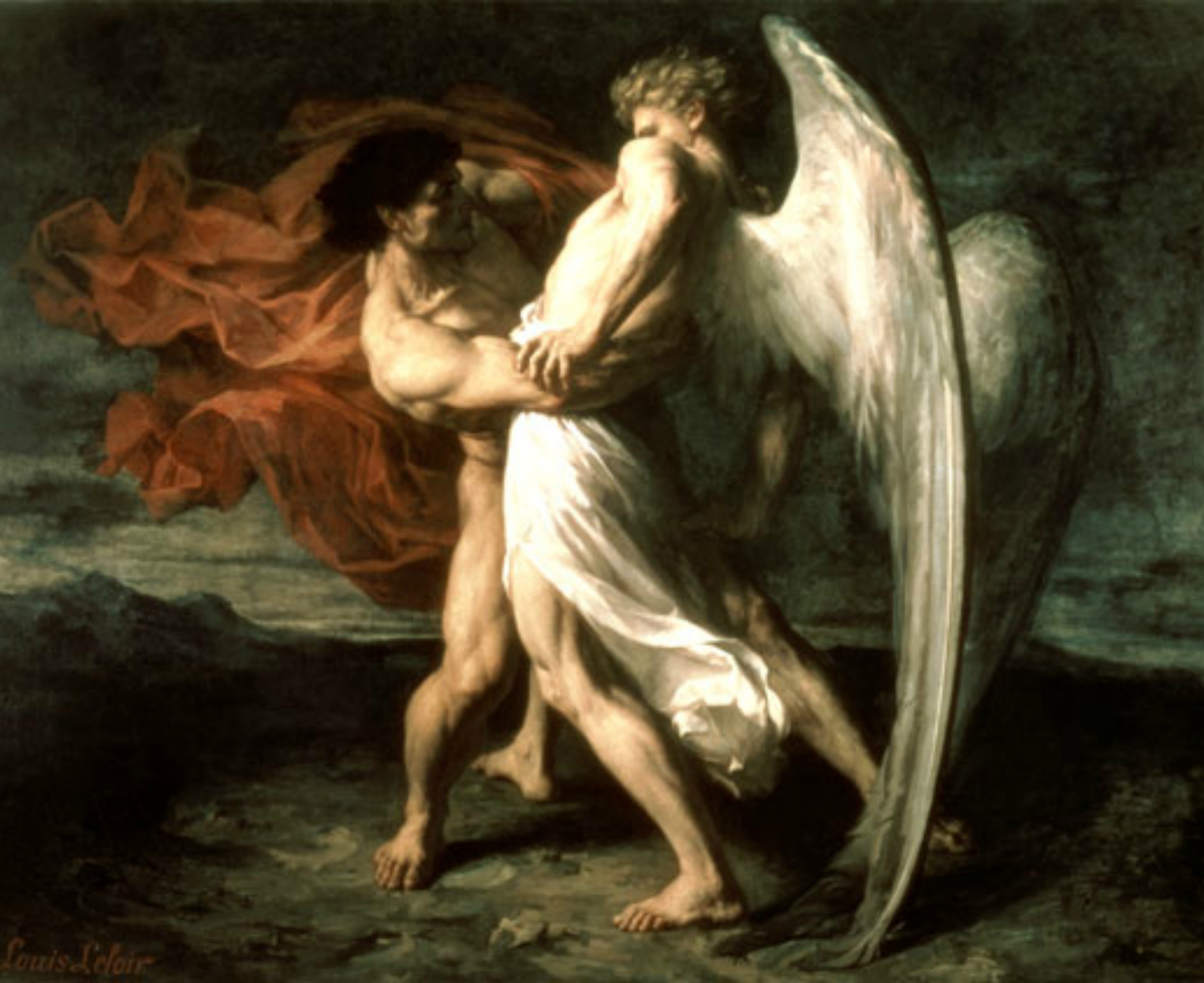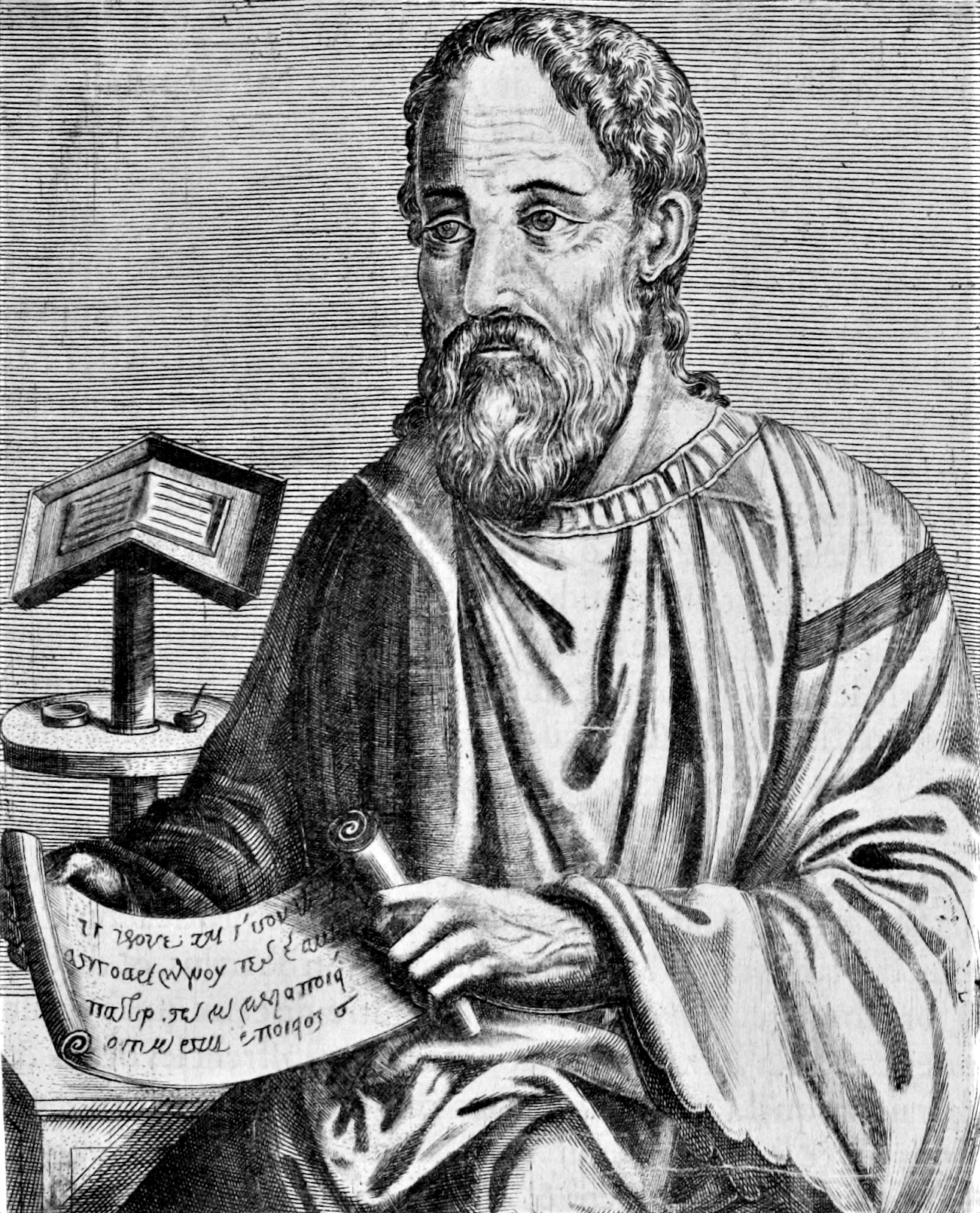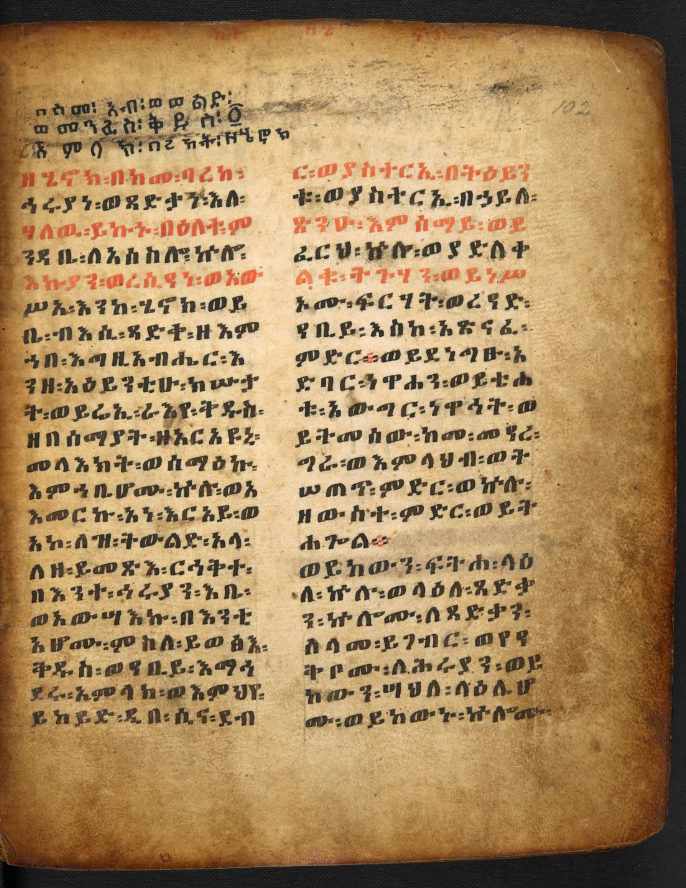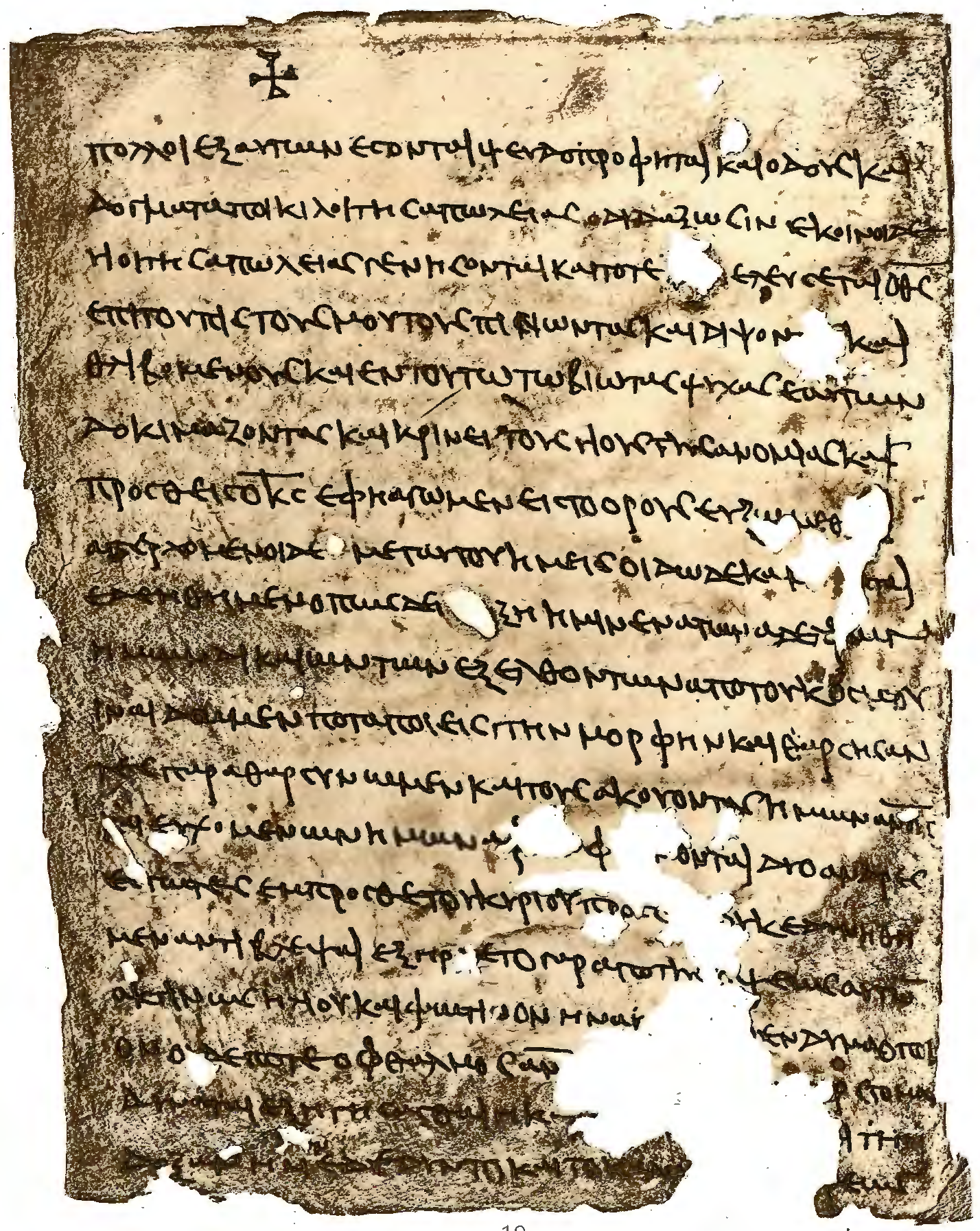|
Stichometry Of Nicephorus
The Stichometry of Nicephorus is a stichometry attributed to Patriarch Nicephorus I of Constantinople (c. 758-828). The work appears at the end of the ''Chronographikon Syntomon.'' It consists of a list of New Testament and Old Testament works categorized between canonical, disputed, and apocryphal, along with the total number of lines in each text.The work was composed in the 9th century. Some manuscripts attribute the work anonymously rather than to Nicephorus. It is significant in the area of canon studies as it includes counts for Christian texts which have been lost over the course of time. This has enabled modern scholars to determine how much of various fragmentary texts from the New Testament apocrypha and Old Testament apocrypha remain missing. The New Testament writings considered disputed: * Revelation of John * Apocalypse of Peter * Epistle of Barnabas * Gospel of the Hebrews The Old Testament writings considered disputed: * Book of Enoch * Testaments of the Twe ... [...More Info...] [...Related Items...] OR: [Wikipedia] [Google] [Baidu] [Amazon] |
Patriarch Nicephorus I Of Constantinople
Nikephoros I (; – 5 April 828) was a Byzantine writer and Ecumenical Patriarch of Constantinople from 12 April 806 to 13 March 815. Life He was born in Constantinople as the son of Theodore and Eudokia, of a strictly Orthodox family, which had suffered from the earlier Iconoclasm. His father Theodore, one of the secretaries of Emperor Constantine V, had been scourged and banished to Nicaea for his zealous support of Iconodules,Johann Peter Kirsch, "St. Nicephorus", Catholic Encyclopedia Vol. 11, New York, Robert Appleton Company, 1911 and the son inherited the religious convictions of the father. While still young Nicephorus was brought to the court, where he became an imperial secretary and entered the service of the Empire. Under |
Epistle Of Barnabas
The Epistle of Barnabas () is an early Christian Greek epistle written between AD 70 and AD 135. The complete text is preserved in the 4th-century Codex Sinaiticus, where it appears at the end of the New Testament, following the Book of Revelation and before the Shepherd of Hermas. For several centuries, it was one of the "antilegomena" ("disputed") writings that some Christians looked at as sacred scripture, while others excluded them. Eusebius of Caesarea classified it with excluded texts. It is mentioned in a perhaps third-century list in the sixth-century Codex Claromontanus and in the later Stichometry of Nicephorus appended to the ninth-century ''Chronography'' of Nikephoros I of Constantinople. Some early Fathers of the Church ascribed it to the Barnabas mentioned in the Acts of the Apostles, but it is now generally attributed to an otherwise unknown early Christian teacher (though some scholars do defend the traditional attribution). It is distinct from the Gospel of B ... [...More Info...] [...Related Items...] OR: [Wikipedia] [Google] [Baidu] [Amazon] |
Stichometry
Stichometry is the practice of counting lines in texts: Ancient Greeks and Romans measured the length of their books in lines, just as modern books are measured in pages. This practice was rediscovered by German and French scholars in the 19th century. ''Stichos'' (Plural, pl. ''stichoi'') is the Greek word for a 'line' of prose or poetry and the suffix '-metry' is derived from the Greek word for measurement. The length of each line in the ''Iliad'' and ''Odyssey'', which may have been among the first long, Greek texts written down, became the standard unit for ancient stichometry. This standard line (''Normalzeile'', in German) was thus as long as an epic hexameter and contained about 15 syllables or 35 Greek letters. Stichometry existed for several reasons. Scribes were paid by the line and their fee per line was sometimes fixed by legal decree. Authors occasionally cited passages in the works of other authors by giving their approximate line number. Book buyers used total l ... [...More Info...] [...Related Items...] OR: [Wikipedia] [Google] [Baidu] [Amazon] |
Testaments Of The Twelve Patriarchs
The Testaments of the Twelve Patriarchs is a constituent of the apocryphal scriptures connected with the Bible. It is believed to be a pseudepigraphical work of the dying commands of the twelve sons of Jacob. It is part of the Oskan Armenian Orthodox Bible printed in 1666. Fragments of similar writings were found at Qumran, but opinions are divided as to whether these are the same texts. It is generally considered apocalyptic literature. The Testaments were written in Hebrew or Greek, and reached their final form in the 2nd century CE. In the 13th century they were introduced into the Western world through the agency of Robert Grosseteste, Bishop of Lincoln, whose Latin translation of the work immediately became popular. He believed that it was a genuine work of the twelve sons of Jacob, and that the Christian interpolations were a genuine product of Jewish prophecy; he accused Jews of concealing the Testaments "on account of the prophecies of the Saviour contained in them." ... [...More Info...] [...Related Items...] OR: [Wikipedia] [Google] [Baidu] [Amazon] |
Apocalypse Of Zephaniah
The Apocalypse of Zephaniah (or ''Apocalypse of Sophonias'') is a 1st-century pseudepigraphic Jewish text attributed to the Biblical Zephaniah and so associated with the Old Testament, but not regarded as scripture by Jews or any Christian group. It was rediscovered and published at the end of the 19th century. The canonical Book of Zephaniah has much mystical and apocalyptic imagery, and this apocalyptic-style text deals with a similar subject. Manuscript Tradition The existence of the ''Apocalypse of Zephaniah'' was known from ancient texts (for example the Stichometry of Nicephorus) but it was considered lost. In 1881 two fragmentary manuscripts, respectively written in Akhmimic and Sahidic Coptic dialects, and probably coming from the White Monastery in Egypt, were bought by the Bibliothèque Nationale of Paris (inventory number ''Copte'' 135O. S. Wintermute, ''Apocalypse of Zephaniah (First Century B.C.-First Century A.D.). A New Translation and Introduction'', in James ... [...More Info...] [...Related Items...] OR: [Wikipedia] [Google] [Baidu] [Amazon] |
Apocalypse Of Elijah
The Apocalypse of Elijah is an early Christian work written in the Coptic language commonly held to be a documentation of the oral presentation of multiple original and classical manuscripts. Presented in part as the direct word of the Hebrew God, Yahweh, to the biblical prophet Elijah, from where its name is derived, the text includes a short commentary on some early Christian fasting and prayer disciplines, a prophetic message about the kingdoms of Assyria and Egypt, and accounts of the presentation of the antichrist, his encounters with Elijah and Enoch, and his ultimate demise. Although it is given the title of apocalypse, it does not have many of the usual traits of a classical apocalypse; yet, it ties together critical themes of apocalyptic literature such as kingdom eschatology and antichrist imagery. There is another Apocalypse of Elijah dating from the 3rd–7th centuries (Sefer Elijah or Sefer Eliahu) written in Hebrew to a Jewish audience, but it does not appear to ... [...More Info...] [...Related Items...] OR: [Wikipedia] [Google] [Baidu] [Amazon] |
Apocalypse Of Abraham
The ''Apocalypse of Abraham'' is an apocalyptic Jewish pseudepigrapha (a text whose claimed authorship is uncertain) based on biblical Abraham narratives. It was probably composed in the first or second century, between 70–150 AD. It has survived only in Old Slavonic recensions. It is not regarded as scripture by Jews or Christians, but it was a scripture for the now-extinct Bogomil sect. Manuscript tradition The text of the ''Apocalypse of Abraham'' has been preserved only in Slavonic; it occurs in the '' Tolkovaja Paleja'' (or ''Explanatory Paleja'', a medieval compendium of various ancient Jewish texts and comments that also preserved the Ladder of Jacob). The original language of this text was almost certainly Hebrew: it was translated into Slavonic either directly from Hebrew or from a lost intermediate Greek translation. The whole text survives in six manuscripts usually gathered in two families: the main manuscript of the first family is referred to as S edited by Tixon ... [...More Info...] [...Related Items...] OR: [Wikipedia] [Google] [Baidu] [Amazon] |
Assumption Of Moses
The Assumption of Moses, also known as the Testament of Moses (Hebrew עליית משה ''Aliyat Mosheh''), is a 1st-century Jewish apocryphal work. It contains secret prophecies Moses revealed to Joshua before passing leadership of the Israelites to him. It is characterized as a "testament", meaning the final speech of a dying person, Moses. The text is thought to have been originally written in Hebrew or another Semitic language, and then translated to Koine Greek. The only surviving manuscript is a 6th-century Latin translation of the Greek text. The manuscript was incomplete, and the rest of the text is lost. From references in ancient works, it is thought that the missing text may have depicted a dispute over the body of Moses, between the archangel Michael and Satan. Seth and Joshua and several witnesses saw lightning strike in front of the black clothed stranger that was watching over the body of Moses. As the dust of the earth settled down, a Roman-like soldier wearing si ... [...More Info...] [...Related Items...] OR: [Wikipedia] [Google] [Baidu] [Amazon] |
Prayer Of Joseph
The Prayer of Joseph is a pseudepigraphic writing (a text whose claimed authorship is unfounded) of the Old Testament. It was composed either in Aramaic (if Jewish) or in Greek (if Christian) in the 1st century AD. The text is almost lost and only a few fragments have survived in ancient quotations concerning the Biblical patriarch Jacob. The ''Prayer of Joseph'' narrates that Jacob was the incarnation of the angel ''Israel'' who competed with Uriel over their rank in heaven. The ''Prayer of Joseph'' was well known in the early 3rd century by Origen who speaks of it as ''a writing not to be despised'', and expressly states that it was in use among the Jews. The ''Prayer of Joseph'' is usually considered to be part of the Apocalyptic literature. Manuscript tradition and Provenance Only three fragments have survived of the ''Prayer of Joseph'': Fragment A, which is the longest, was preserved in Origen's ''"Commentary on the Gospel of John"- Book 2.31(25).186-192''. Fragment B, a ... [...More Info...] [...Related Items...] OR: [Wikipedia] [Google] [Baidu] [Amazon] |
Gospel Of The Hebrews
The Gospel of the Hebrews (), or Gospel according to the Hebrews, is a lost Jewish–Christian gospel. The text of the gospel is lost, with only fragments of it surviving as brief quotations by the early Church Fathers and in apocryphal writings. The fragments contain traditions of Jesus' pre-existence, incarnation, baptism, and probably of his temptation, along with some of his sayings. Distinctive features include a Christology characterized by the belief that the Holy Spirit is Jesus' Divine Mother and a first resurrection appearance to James, the brother of Jesus, showing high regard for James as the leader of the Jewish Christian church in Jerusalem. It was probably composed in Greek in the first decades of the 2nd century and is believed to have been used by Greek-speaking Jewish Christians in Egypt during that century. The Gospel of the Hebrews is the only Jewish–Christian gospel that the Church Fathers referred to by name, believing there was only one Hebrew Gos ... [...More Info...] [...Related Items...] OR: [Wikipedia] [Google] [Baidu] [Amazon] |
Book Of Enoch
The Book of Enoch (also 1 Enoch; Hebrew language, Hebrew: סֵפֶר חֲנוֹךְ, ''Sēfer Ḥănōḵ''; , ) is an Second Temple Judaism, ancient Jewish Apocalyptic literature, apocalyptic religious text, ascribed by tradition to the Patriarchs (Bible), patriarch Enoch who was the father of Methuselah and the great-grandfather of Noah..Barker, Margaret. (2005) [1998]. ''The Lost Prophet: The Book of Enoch and Its Influence on Christianity''. London: SPCK; Sheffield Phoenix Press. The Book of Enoch contains unique material on the origins of demons and Nephilim, why some fallen angel, angels fell from heaven, an explanation of why the Genesis flood narrative, Genesis flood was morally necessary, and a prophetic exposition of the Millennialism, thousand-year reign of the Messiah. Three books are traditionally attributed to Enoch, including the distinct works 2 Enoch and 3 Enoch. 1 Enoch is not considered to be Biblical canon, canonical scripture by most Jewish or Christian chu ... [...More Info...] [...Related Items...] OR: [Wikipedia] [Google] [Baidu] [Amazon] |
Apocalypse Of Peter
The Apocalypse of Peter, also called the Revelation of Peter, is an early Christian text of the 2nd century and a work of apocalyptic literature. It is the earliest-written extant work depicting a Christian account of heaven and hell in detail. The Apocalypse of Peter is influenced by both Jewish apocalyptic literature and Greek philosophy of the Hellenistic period. The text is extant in two diverging versions based on a lost Koine Greek original: a shorter Greek version and a longer Ethiopic version. The work is pseudepigraphal: it is purportedly written by the disciple Peter, but its actual author is unknown. The Apocalypse of Peter describes a divine vision experienced by Peter through the risen Jesus Christ. After the disciples inquire about signs of the Second Coming of Jesus, the work delves into a vision of the afterlife (), and details both heavenly bliss for the righteous and infernal punishments for the damned. In particular, the punishments are graphically des ... [...More Info...] [...Related Items...] OR: [Wikipedia] [Google] [Baidu] [Amazon] |






